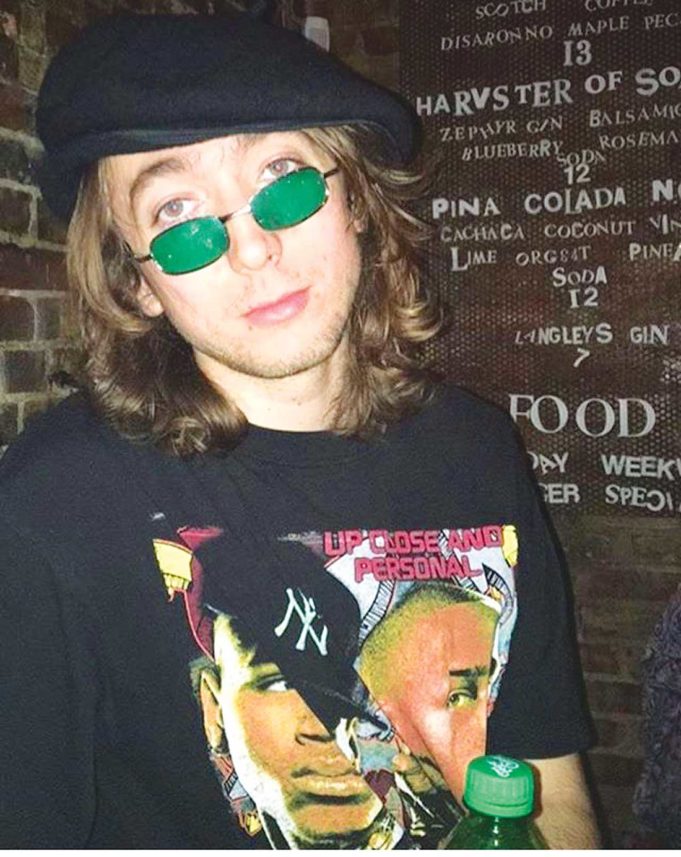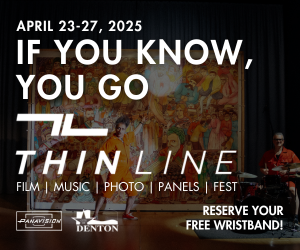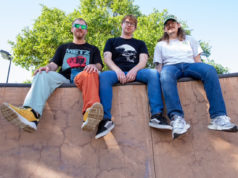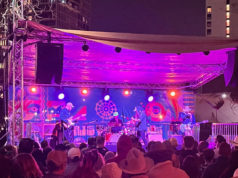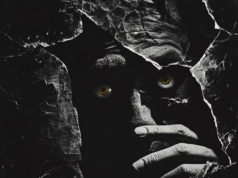Between a March Hearsay column that asked if any local bands under the age of 30 can draw 300 people, and a spirited, scenester-y Facebook discussion in May that tried to make sense of what local audiences wanted out of live shows, there is obviously a conversation about the health of the Fort Worth music ecosystem running through the brains of its various components. Show attendance is indeed an important metric, but so is the age of the fans getting their hands stamped. Put another way: What are the kids into these days? Even though I have played in a million bands, and now play bass in Oil Boom and Son of Stan, I thought I’d turn to “the scene” for some possible answers, namely: 21-year-old “international pop star” Steve Gnash; Ian Morgan, the 16-year-old bassist for cross-county pop-punks Vegan Shark; and Morgan’s thirtysomething dad, Jack Russell, who’s also the bassist for the long-running country/folk outfit the Whiskey Folk Ramblers. – Steve Steward
Weekly [to Morgan]: Do you think kids your age are interested in local music?
Ian Morgan: I don’t really see young people in my age range at local shows. Except Steve Gnash.
Steve Gnash: I’m the youngest of them all.
Weekly [to Morgan]: What’s the oldest age in Vegan Shark?
Morgan: Two of the guys are 18.
Weekly: Where do y’all typically play?
Morgan: We actually play in a lot of bars still, like Lola’s [Saloon] and Armoury D.E. [in Dallas]. But at first, we were playing in sheds and house shows.
Weekly: What are some of the younger bands you play with?
Morgan: We play with Sub-Sahara a lot, Teenage Sexx.
Gnash: I don’t know if there are a lot of “young bands” around here. I feel like that’s an age where you’re developing as a musician. You’re buying gear and learning how to play stuff, and it takes a lot of time invested to be like, “Oh, we’re in a band now.” As far as the young people going to shows goes, I think they do go to shows that are all ages. But the local scene that we are participating in, it’s not as accessible to them, and it’s also not well-documented. It’s not that it’s not appealing. There are bands that appeal to high school kids. I played a show with Summer Salt from Austin at Spinster Records in Dallas, and it was crowded with 15-year-olds. And I’ve never seen that many kids at shows. Kids go to shows. It’s just which ones do they know about?
Weekly: How do you promote shows to teenagers?
Gnash: I mean, how do you promote to anybody, though? When you can drink, you go to a bar. There’s got to be an incentive to go to a show, I think.
Weekly: Ian, what’s an incentive for someone your age to go to a show?
Morgan: I try to get some of my friends to go to shows, but usually their parents won’t let them or their parents are scared of the shows.
Weekly: Jack, how old were you when you went to your first local show?
Jack Russell: I was 17 when I discovered that Trees would let 17-year-olds in. … Plus, back then we didn’t have the same [kinds of] video games and iPhones and were just dying for something to do.
Weekly: Do you think that people your age are just uninterested in seeing bands because they have a bunch of other shit they can do?
Morgan: It seems like that to me. Most of the people I talk to don’t really care about music that much.
Weekly: But Steve is shaking his head.
Gnash: Well, what were you doing when you were 16? What bands were you going to see?
Weekly: I wanted to see ska bands like the Aquabats and Reel Big Fish.
Gnash: Right, so now it’s bigger bands like The Orwells and The Walters. … I think kids are gonna go to shows like that, but I don’t think most kids are gonna go to a show at a place like 1919 [Hemphill]. I didn’t feel involved in a scene or a region until I was maybe 17. I wasn’t aware of it enough to realize there was a community.
Weekly: I feel like the people who are older and involved in the local music business want to know how to get younger kids interested because they’re eventually going to be 21, going to bars. When I was 17 and went to my first few shows, I was like, “Oh, shit. I wanna do this for the rest of my life.” But like Ian said, there weren’t a lot of people my age who felt the same way. … Let’s say then, between the ages of “about to graduate high school” to “not quite old enough to drink,” like 16 through 20, what are those kids doing?
Russell: Getting fake IDs. …
Gnash: When you go to Denton, there’s a healthy music scene there, and everyone’s underage, and that’s because the shows are free, and they’re well-documented because everyone’s on the same Facebook group. … It’s documented on a medium that’s accessible to younger people. …
Weekly: Is there a venue you wanted to see that you couldn’t get into because you were under 21?
Russell: Ian’s never been to the Double Wide because of that.
Gnash: I wanted to see Gary Wilson at Double Wide, but couldn’t because I wasn’t 19.
Russell: Also, someone who’s under 21 isn’t any good to a bartender.
Weekly: Do you think matinee all-ages shows at local venues would make parents more comfortable about their kids going to shows?
Morgan: Maybe so if it’s a daytime thing. But one reason cited by people who can’t go is that the shows are either at bars or near bars, and parents automatically assume there will be problems.
Weekly: If it’s a matinee show marketed to younger people, I guess you’d have to make it clear there wasn’t going to be drinking unless it was, you know, a dad who brought their kids.
Morgan: Yeah, maybe.
Weekly: Vegan Shark has played at bars. Is it weird to play a place where you’re not old enough to drink, and there’s a bunch of old people there drinking?
Morgan: I dunno. … I’m not really interested in that, anyway. But it is a little weird to see drunk adults everywhere. Being the only sober person in the room can be a little annoying.
Weekly: Steve, did you play any bars before you were old enough to drink?
Gnash: A few, but for the most part, we played house shows. 1919 was really active, 1912 [Club] was a bar with a really cool punk scene for a minute, until it got shut down. That was a scene where people were like 17 to 23, and it was because it was music targeted to them. It was exclusive enough where not many people knew about it, like half the bands didn’t even have Bandcamps, just like a YouTube link with a Mediafire rip if you want the cassette, like eight songs, like 1983 but made for the internet.
Weekly: Do you think not having a media presence is part of what makes a young band cool?
Gnash: Not necessarily. I love media presences. It’s all about image and perception, but it’s also about having an incentive to be there, whether it’s feeling included in a scene that no one else is a part of and gaining an identity from it, or it’s seeing it and going “that looks fun as fuck.”
Weekly: When did you start playing?
Morgan: Like 13 or 14?
Gnash: I started playing drums when I was 12, but it wasn’t until I was 16 that I was finishing songs and interested in recording. You just jam with every weird kid in the suburbs that owns a Jackson and learn a bunch of songs you don’t want to cover, but you’re the drummer so you’re just stuck hanging out with people who play guitar. But eventually I taught myself guitar.
Morgan: Vegan Shark was originally a two-piece. We all knew each other over Facebook. The guitarist lives in Dallas, and the other two guys live in Plano.
Russell: One of the kids in Plano has a car. But the other kid, I’ve seen him get on a bus with an amp and guitar.
Weekly: So what’s an ideal show? Like how many bands, what should the cover be? When I was 17, I only had like $10.
Gnash: I usually have five.
Weekly: At this point in your music careers, do you care about making money from a show?
Morgan: I appreciate money, but I don’t have to pay rent, so …
Weekly: When you play a show, do you have an expectation of what your band should make?
Gnash: I usually have five, six people joining me onstage. And I want them to know their time spent learning my songs, playing the show, that it’s valuable. If I make $200, I split it with them and don’t take a cut. I mean, this one guy, he makes money playing jazz gigs. He doesn’t need to be in my band. But I want him to know his time is valuable. … But I’m also big into scarcity. I don’t want to play too much. And I’m trying to write another record, so rehearsing for shows can be a distraction.
Weekly: Let’s say there’s a matinee show, four or five bands, all around y’all’s age. What’s the most your friends would pay to come see you?
Morgan: Probably $5, maybe $10.
Gnash: Sometimes you get there, it says the cover is $10, but you have to pay $20 because you’re underage. Four bands, maybe five. One of them has to draw, because most don’t have huge followings.
Weekly: What bands do you think draw big among your age group? Like 10 years ago, there’d be emo bands on MySpace that were pretty young, and a month after they launched their page, they’d be blowing up because they’d have thousands of kids following them.
Gnash: Definitely Summer Salt from Austin. They’re in their mid-20s, but their following has a lot of younger people in it, and they consistently pack shows. … Around here? Not really sure. I think Soundcloud rap music, in terms of cultural significance, is like MySpace emo from 10 years ago.
Weekly: Do you think hip-hop is more popular with people who are between 17 and 20?
Gnash: Not necessarily. Anything aesthetically interesting, unique enough to make you feel like you’re into something new. That’s why Summer Salt is popular, because they’re refreshing. Or like garage rock five years ago, when it came back for the fifth time. Like Fidlar. It’s an immersive culture, everyone’s getting a lip tattoo, and they blew up. …
Weekly: Sort of like Burger Records was a scene. …
Gnash: For a moment, yeah. It had a culture, identifiers, you got into it. No different than L.A. hardcore before ’86.
Weekly: Or ska punk in ’96.
Gnash: Yeah. You were just in that scene. It’s just waves of that.
Weekly: Are you less interested in a band if they’re like my or your dad’s age?
Morgan: I think I like a good amount of bands that are both older and my age. Personally, I tend to watch younger bands, though they’re probably not as good as bands like Sealion or Siamese are. …
Russell: Because Sealion are old people now.
Weekly: Blows my mind. But that’s a funny thing. … When I interviewed Same Brain a couple weeks ago, I laughed to myself because Brandon Hoffman is 24, and he was like the elder statesman of the band, just because the other guys are around 21.
Gnash: I’m going to see Ohio Players at The Door next month! I saw Dinosaur Jr. when I was younger. My dad drove me.
Weekly: But as Ian said earlier, he feels more comfortable when the bands are younger.
Russell: Is it because they’re playing cooler music, or because of their age?
Morgan: I feel more connected because of their age, and I think the younger bands are playing some interesting music.
Gnash: I think the difference between older bands and younger bands is that one has had a lot of time to refine one specific thing that requires listening to all this different shit, knowing why something is weird and specific, whereas younger bands, they are more prone to accidentally doing something no one’s done yet, due to their own limitations.



